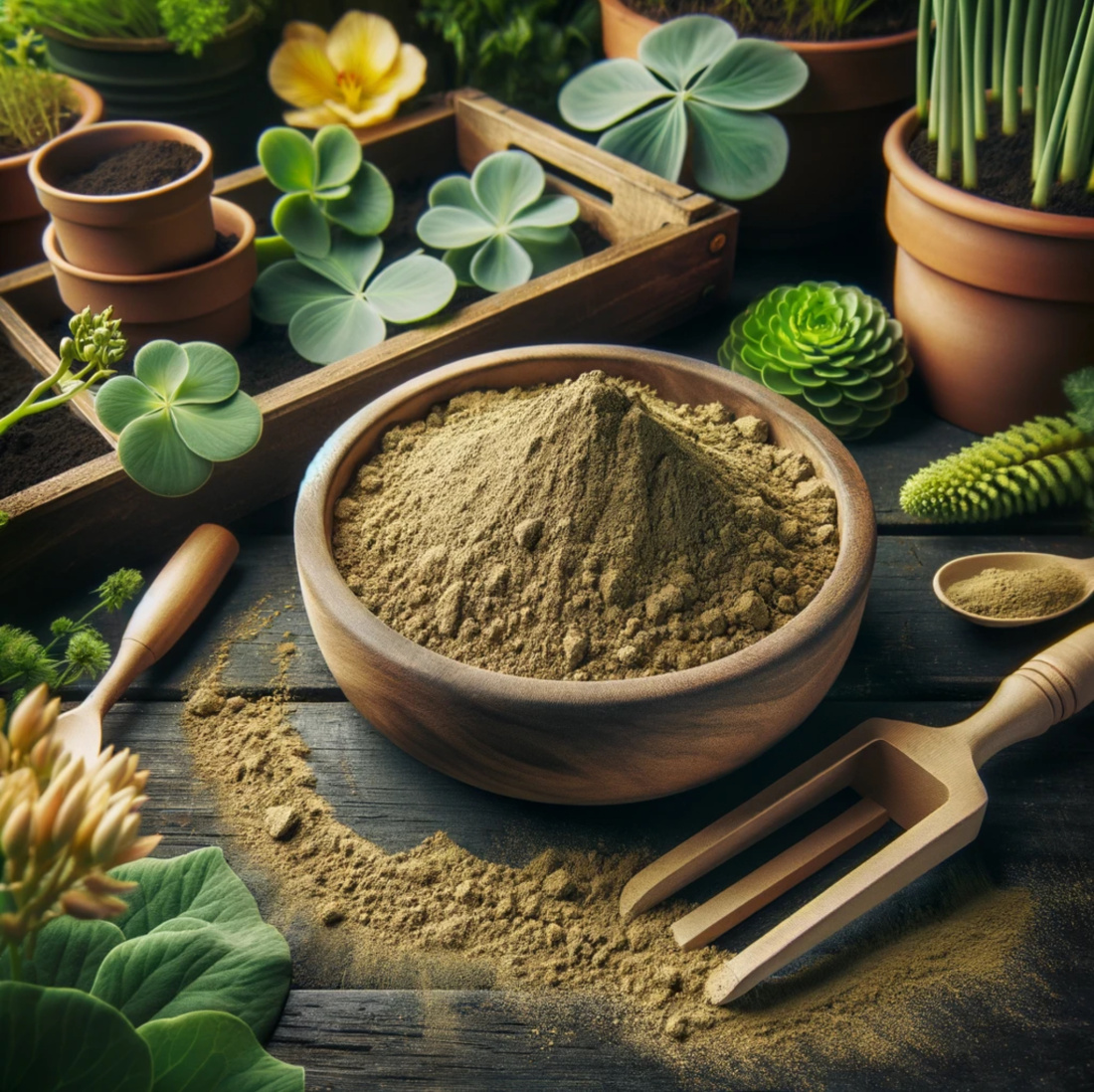
Rock Phosphate Introduction
Rock phosphate, a natural mineral rich in phosphorus, stands out as an essential soil amendment for promoting vigorous plant growth, robust root development, and abundant flowering and fruiting.
Unlike synthetic fertilizers, rock phosphate provides a slow-release source of phosphorus that plants can access over time, making it a favored choice for organic gardening and sustainable agriculture.
This guide will detail the benefits of rock phosphate, its nutritional profile, best practices for application, compatibility with various plants and soil types, and its environmental advantages.
Typical NPK Value: 0-3-0

Rock Phosphate Key Benefits
Adding rock phosphate to your garden soil brings several significant benefits:
- Sustained Phosphorus Supply: Offers a long-term phosphorus source, crucial for energy transfer, photosynthesis, and nutrient movement within the plant.
- Root System Support: Enhances root development, helping plants establish more effectively and access water and nutrients more efficiently.
- Improved Flowering and Fruiting: By providing essential phosphorus, it supports better bloom production and fruit set, leading to higher yields.
- Soil Health: Contributes to soil fertility without altering soil pH, encouraging a healthier soil ecosystem.

Rock Phosphate Nutritional Profile
Rock phosphate is primarily valued for its phosphorus content, typically ranging between 20-30%.
This form of phosphorus is not immediately available to plants; instead, it breaks down slowly over several years, providing a steady supply.
The slow release mitigates the risk of runoff and pollution associated with soluble phosphorus sources, making it an environmentally friendly option.

How to Use Rock Phosphate
Incorporating rock phosphate into your gardening regimen is simple:
- For New Plantings: Mix rock phosphate directly into the soil at planting time, using about 5 pounds per 100 square feet, to encourage strong root development from the start.
- For Established Gardens: Broadcast rock phosphate over the soil surface at the same rate and gently till it into the soil. Water the area well to help start the breakdown process.
- In Compost: Add rock phosphate to your compost pile to enrich it with phosphorus, improving the nutrient quality of the compost you add to your garden.

Ideal Plants and Soil Types
Rock phosphate is particularly beneficial for root crops, such as carrots, potatoes, and radishes, and flowering plants, which demand high phosphorus levels for optimal growth.
It's suitable for use in all soil types but is especially valuable in acidic soils where phosphorus tends to be less available.
Its slow-release nature makes it safe for use around sensitive plants without the risk of nutrient burn.

Sustainability and Environmental Impact
As a natural, mined product, rock phosphate is a more sustainable phosphorus source compared to synthetic fertilizers.
Its slow-release property minimizes the risk of leaching and phosphorus runoff, reducing the potential for water pollution and eutrophication in nearby water bodies.
By enhancing root development and soil structure, rock phosphate also contributes to the long-term health and resilience of garden ecosystems.

Rock Phosphate Tips and Tricks
To maximize the effectiveness of rock phosphate in your garden, keep these tips in mind:
- Test Your Soil: Conduct a soil test to determine your garden's phosphorus levels before applying rock phosphate, ensuring your soil genuinely needs this nutrient.
- Apply Sparingly: Given its slow-release nature, rock phosphate does not need to be applied annually. A single application can last several years, depending on your soil's phosphorus levels.
- Combine with Other Amendments: For a comprehensive soil health strategy, use rock phosphate in conjunction with other organic amendments like bone meal or compost to provide a balanced array of nutrients.

Rock Phosphate Conclusion
Rock phosphate offers gardeners a sustainable, long-term solution to phosphorus deficiency, promoting healthier plant growth, and supporting soil health.
By incorporating rock phosphate into your soil management practices, you can enjoy the benefits of a naturally fertile garden that supports robust plant development.
Experiment with rock phosphate in your garden and share your experiences, contributing to a community of gardeners dedicated to sustainable and organic gardening practices. Together, we can nurture thriving gardens that are as healthy for the environment as they are bountiful.


